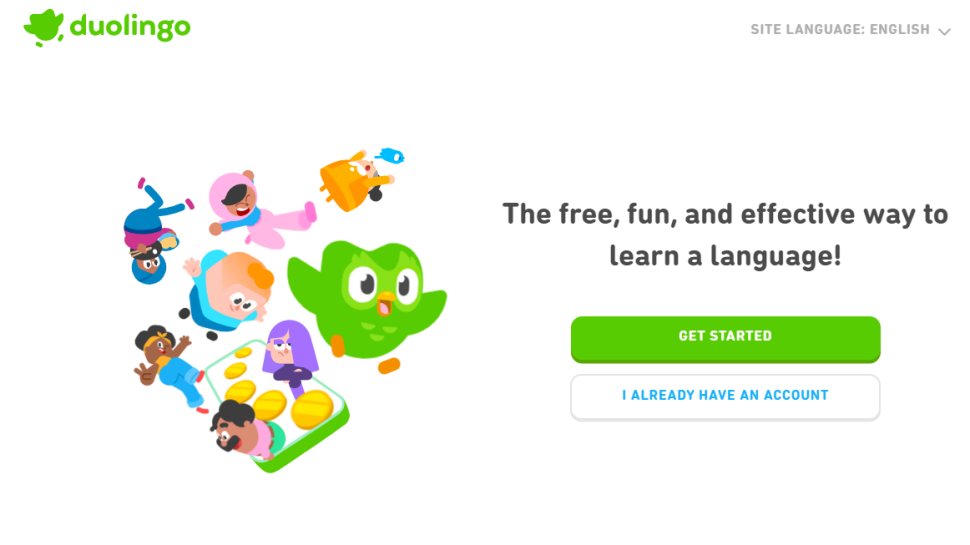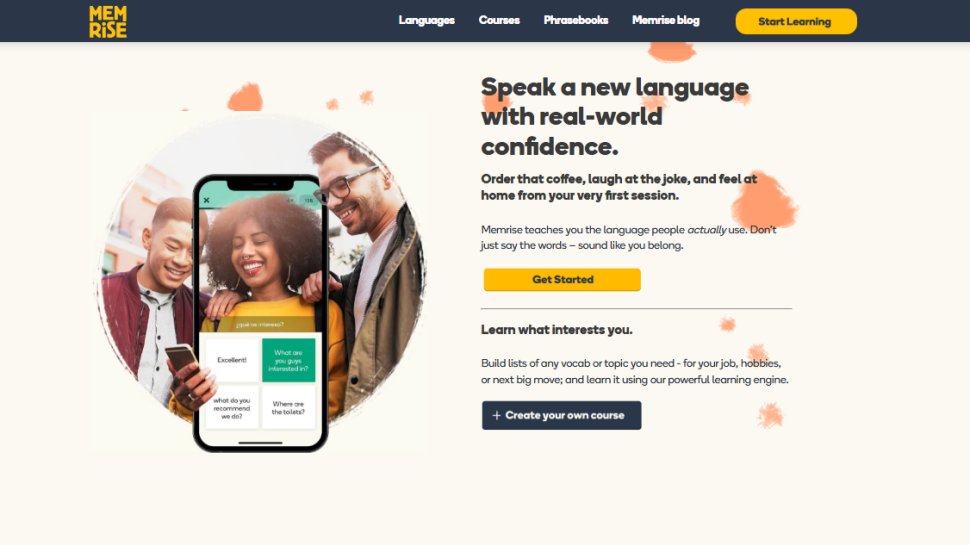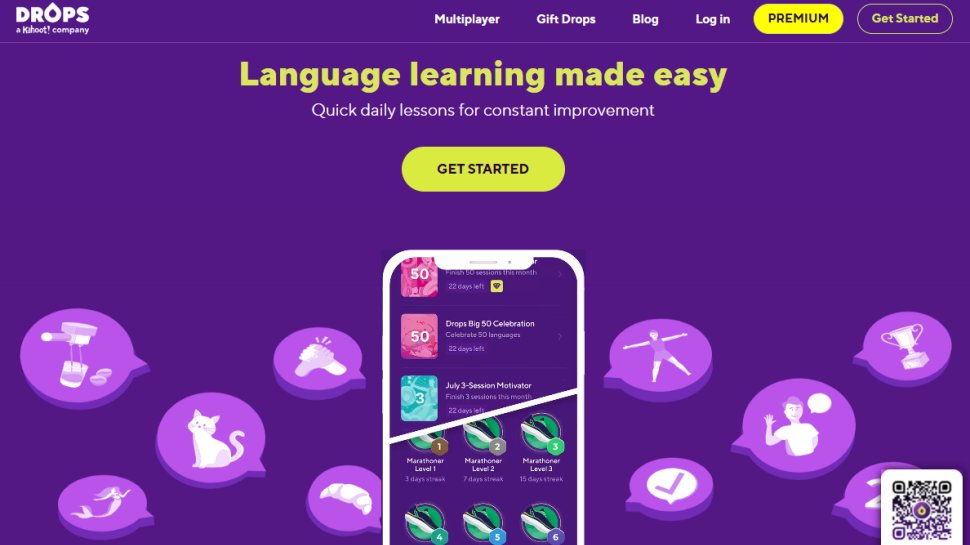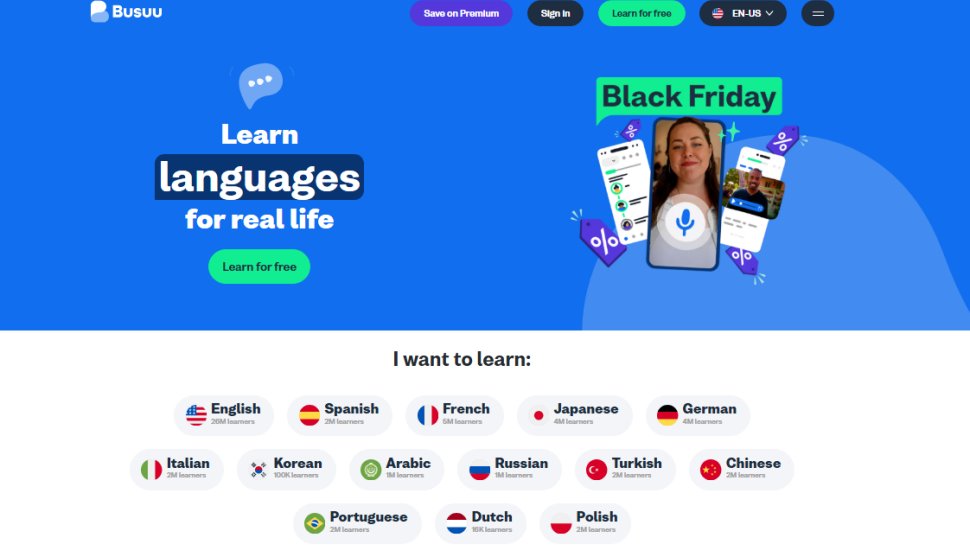Best language learning app of 2025
Study a language anywhere

We list the best language learning apps, to make it simple and easy to discover a new language or improve upon your existing skills with online resources.
Are you finally ready to learn a new language? Not sure where to begin? Becoming proficient in Spanish, French, Chinese, or another language no longer means taking a class in person or online. Instead, head to Google Play or the App Store. There are many language learning apps on the market, and each one tends to focus on different techniques to get the job done.
The best language learning apps have you covered whether you want to learn a new language for an upcoming business trip, a vacation abroad, or just for fun. Some use audio, while others focus entirely on written content. Still, others teach new languages through music. So whether you can commit 15 minutes a day or hours to learn your new language(s), these apps have you covered. We've identified the best language learning apps, including paid and free options.
We've also listed the best online courses to learn Spanish.
The best language learning apps of 2025 in full:
Why you can trust TechRadar
Best language learning app overall
1. Duolingo
Reasons to buy
Reasons to avoid
Duolingo is a visually appealing language learning app disguised as a series of fun games that slowly get more challenging. Featuring audio and written content, Duolingo learning lessons allow you to earn points, grab crowns and hearts, and bank streaks. Each of these perks makes it more likely to use the app every day.
Duolingo will determine whether you're new to a language or closer to being proficient when getting started. Based on this, it will develop customized lesson plans.
You can learn all the Duolingo languages for free. In addition, a Duolingo Plus subscription unlocks advanced features. These include no ads, a mistakes review, a progress/mastery quiz, the ability to "repair" streaks, and more.
Overall, Duolingo provides a robust experience that's worth considering. However, two areas where Duolingo could improve itself are clarity and content, as some lessons are easier to understand than others.
Best original language learning app
2. Rosetta Stone
Reasons to buy
Reasons to avoid
It wasn't so long ago when learning a language at home meant buying a series of CDs from Rosetta Stone. Today, there's the Rosetta Stone app, which offers instruction for 25 languages.
You'll first notice Rosetta Stone relies heavily on immersion to teach new languages. Through interactive activities, audio from native speakers, and concepts based on real-world scenarios, it wants you to come out of this being able to communicate in a second language thoroughly. Its methods work — assuming you're dedicated to spending a great deal of time with the app. Too many difficult lessons (even at the basic levels) quickly challenge that dedication.
And yet, there's much to love here, from its intuitive interface to its thoroughness. One word of caution: some lessons are more repetitive than others, which gets annoying, depending on your mood.
Best language learning app experience
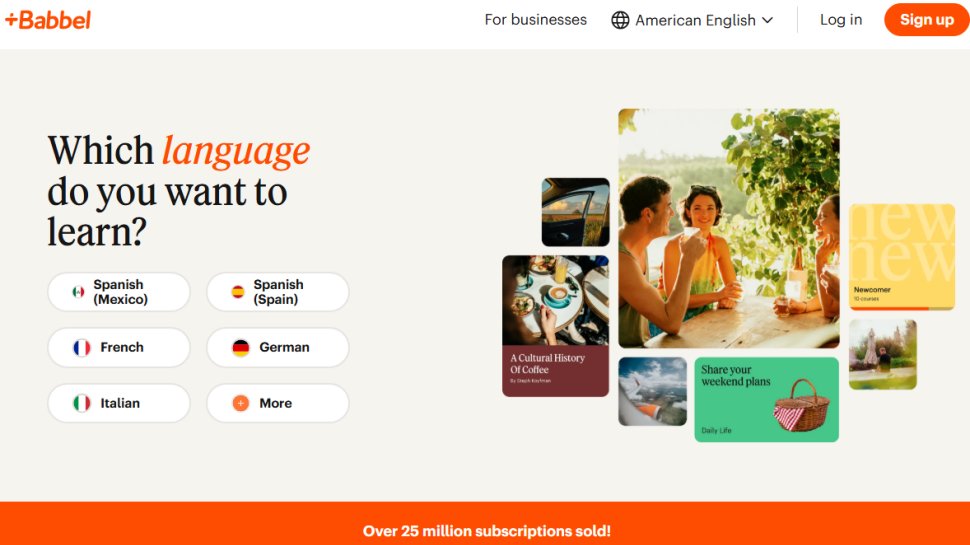
3. Babbel
Reasons to buy
Reasons to avoid
With more than 150 language experts working behind the scenes, Babbel is one of the most popular language-learning programs. Ease of use is one of the reasons for this popularity. Overall, the app does a terrific job of providing a traditional online learning experience with fresh approaches sprinkled in.
Before any course begins, Babbel wants to get a handle on why you want to learn a new language and whether you're already familiar with it. Then, through a series of questions, the service also wants to know how much time you are willing to commit to learning the new language.
You can purchase a Babbel subscription for one-, three-, six-, or 12-months, and there's also a Lifetime package available when signing up through the Babbel website online. The more months you buy, the better the discount, and subscriptions overall cost less when purchased online. Subscriptions include unlimited access to hundreds of lessons at different skills levels. In addition, with Babbel Live, you can attend live virtual classes. Additional options include original podcasts, games, and more.
Babbel is compatible with Android, iOS, and Mac; it supports 13 languages.
Best language learning app for immersion
4. Memrise
Reasons to buy
Reasons to avoid
Memrise uses videos featuring native speakers to teach users new languages. It's practical and puts a new twist on creating an immersive learning experience. As its name suggests, the app uses memory techniques to teach you different words or phrases over time, mainly by using flashcards.
Like other apps on this list, Memrise is free to use and works very well at that level. However, by purchasing a subscription, new features are unlocked. You can choose a monthly or yearly subscription or go bold and get a lifetime pass. Each subscription opens the door to unlimited lessons. Otherwise, you can only take a few classes each day.
Overall, Memrise is fun to use and easy to pick up. And yet, it doesn't feel nearly as complete as other options on the list.
This app is offered on Android and iOS devices and covers 23 languages.
Best language learning app for vocabulary
5. Drops
Reasons to buy
Reasons to avoid
Visual learners will appreciate Drops and its bright and colorful layout similar to Duolingo. Through a series of lessons, you learn a new language by matching objects and words using sounds and written text.
Although Drops is free, a premium membership might be the way to go if you aren't the type of person who likes to wait. As lessons are completed, you must wait 10 hours before being allowed to complete another one — unless you upgrade to premium.
The Drops app is terrific at teaching you vocabulary in different languages. But unfortunately, it's not the app to use if you want to gain conversation skills or grammar. So if those are your goals, pick another option on this list.
The Drops app is available for Android and iOS and covers more than 45 languages. With a Drops premium account, you get unlimited playtime, offline access, no more ads, and more.
Best language learning app for basics
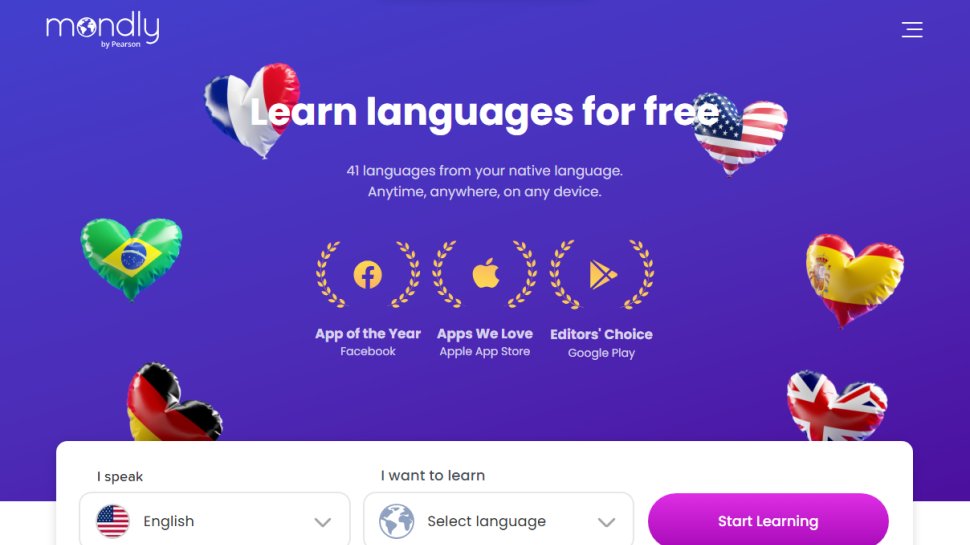
6. Mondly
Reasons to buy
Reasons to avoid
Mondly uses audio, translations, and fun images to present a practical language learning approach. Continuing with a familiar theme, the app is bright and colorful in such a way you can't help but smile while learning new words and phrases.
Although Mondly does allow you to learn a limited number of terms each day, I don't recommend it. Instead, unlock all the features with a premium membership. Watch for special deals online. Don't pay the regular price.
With Mondly, you can learn 41 languages across multiple platforms. If you are beginning with a language, Mondly does a great job. However, its overall content is lacking at more advanced levels.
Best language learning app for audio
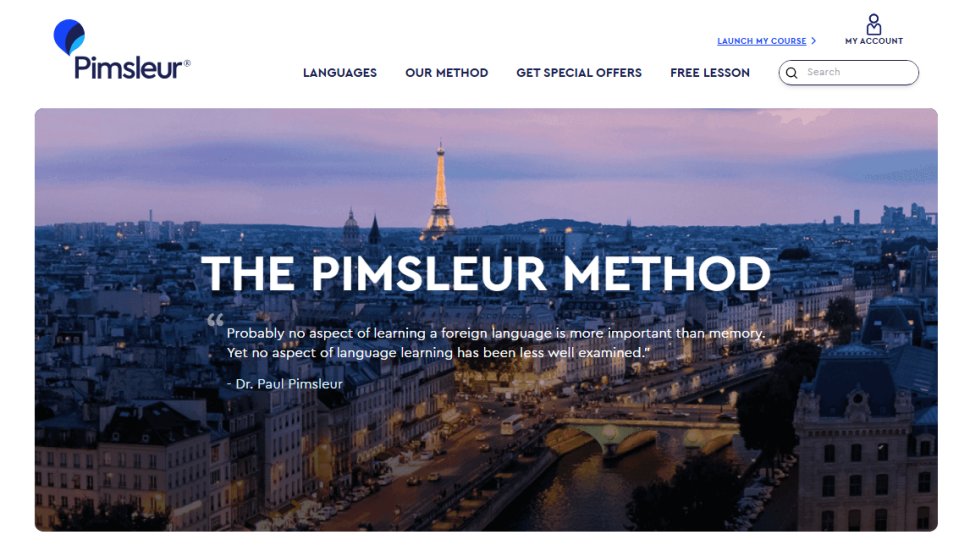
7. Pimsleur
Reasons to buy
Reasons to avoid
Pimsleur provides auditory lessons for 51 languages. Each class is about 30 minutes and designed for an easy download, making it a terrific learning tool for anyone who spends a lot of time on the road. You can also listen to lessons via Amazon Echo.
Each lesson is designed to teach you a valuable skill. For example, you might learn polite phrases, numbers, or survival skills when learning Italian. After each lesson, you can practice using flashcards, matches, and other mini-games.
There's no free version of Pimsleur. Instead, after enjoying a free seven-day trial, you'll need to decide whether to purchase an audio-only or premium membership.
You can find Pimsleur on Android, iOS, PC, and Mac.
Best language learning app for music
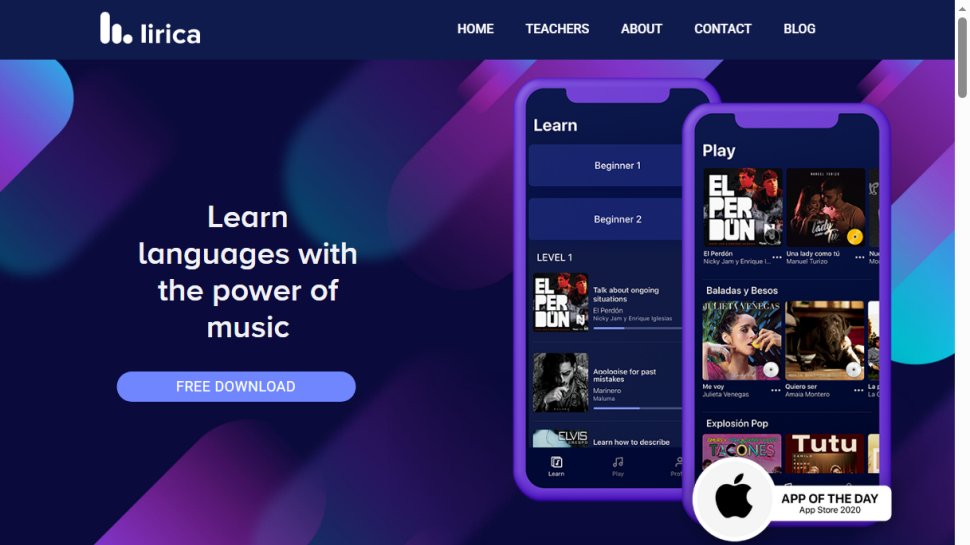
8. Lirica
Reasons to buy
Reasons to avoid
For something completely different, consider Lirica. The impressive app combines culture and modern music (and music videos) to teach German, Spanish, or English. The app focuses on vocabulary and grammar and provides lessons for newbies to intermediate students.
Despite its engaging premise, Lirica's biggest problem is what it doesn't offer — lots of languages. And yet, for the languages that are covered, expect a fun experience worth considering.
Lirica is free to try for seven days. After that, a relatively low-priced membership unlocks all features. The app is available on iOS and Android.
Best language learning app for deadlines
9. Busuu
Reasons to buy
Reasons to avoid
For those who must learn a language by a specific date, Busuu is the one for you. After you answer a series of questions, it will suggest a learning and study program that meets your goals. Ultimately, you get to decide the pace of your learning. Each lesson is valuable and enjoyable; at no time will you feel bored.
With a free Busuu account, you can learn one language. With a premium account, your one language gets enhanced by a personalized study plan and feedback from native speakers. A premium plus account unlocks every Bususs feature, including access to up to 12 languages, offline mode, grammar lessons, etc.
You can find Busuu on iOS and Android.
Best language learning app FAQs
When deciding which language learning app to use, first consider what your skill level is, as many apps presume you're a complete beginner. Therefore if you're an advanced user looking to brush up and improve on their language learning skills then make sure you check that there's an option in the app to cater to your higher skill level.
How we tested the best language learning app
To test for the best language learning apps we first set up an account with the relevant app provider. We then set it up and tested it to see how well it could be used for a range of different skill levels. The aim was to explore each app to see how useful its basic tools were and also how easy it was to get to grips with any more advanced tools.
Get in touch
- Want to find out about commercial or marketing opportunities? Click here
- Out of date info, errors, complaints or broken links? Give us a nudge
- Got a suggestion for a product or service provider? Message us directly
Are you looking for more? Here are the best online learning platforms.
- You've reached the end of the page. Jump back up to the top ^
Sign up to the TechRadar Pro newsletter to get all the top news, opinion, features and guidance your business needs to succeed!
Bryan M. Wolfe is a staff writer at TechRadar, iMore, and wherever Future can use him. Though his passion is Apple-based products, he doesn't have a problem using Windows and Android. Bryan's a single father of a 15-year-old daughter and a puppy, Isabelle. Thanks for reading!
